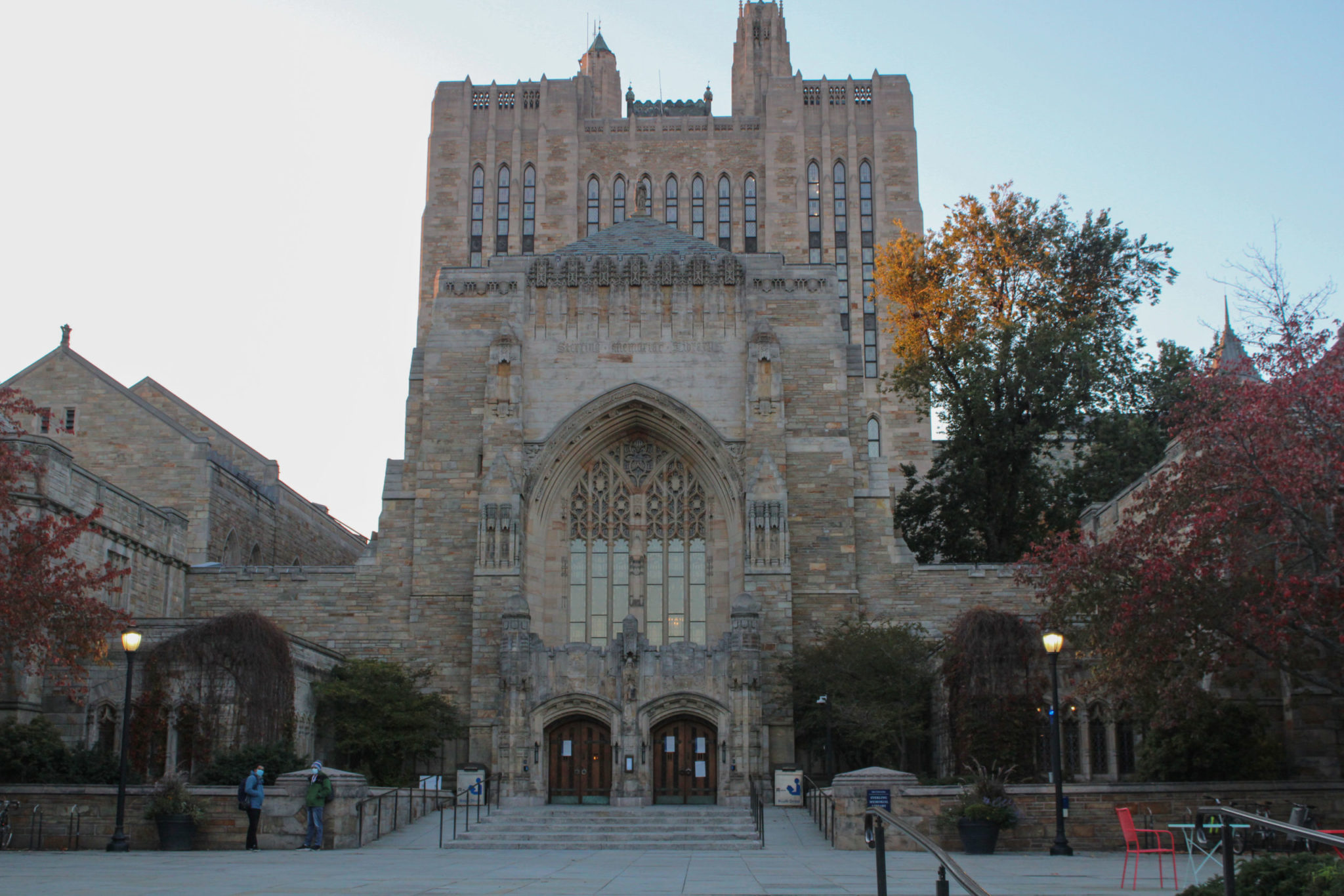Yale students gain access to anonymous sexual assault reporting service
On April 14, the Yale community will be able to use Callisto, an anonymous sexual assault reporting system thait aims to help support survivors and amalgamate complaints against serial offenders.

Yasmine Halmane, Contributing Photographer
On April 14, the Yale community will gain access to Callisto, an anonymous repeat offender detection system that aims to empower survivors to take coordinated and informed action against serial offenders. The introduction of Callisto to campus follows years of advocacy from student group Yale Law Women.
The service, Callisto, is a third-party organization which uses encrypted technology to allow people to identify others harmed by the same perpetrator and to come forward together. Any student can access the network with their Yale email. With the system, people can detail any incident they wish to report, learn if others have had a similar experience with the same offender and explore a range of options for next steps. The platform is entirely private; Yale University staff and Callisto workers will not have access to the submissions.
The Yale Law Women board announced the launch of the service in an April 4 email to the Yale Law School’s listserv, named The Wall. In particular, they said the move will provide students with more information about sexual abuse proceedings, as well as with more support throughout the process.
“Callisto addresses the pronounced underreporting of sexual assaults on university campuses, particularly with respect to the underreporting of serial predation and assaults by faculty or staff members,” the board wrote in their email. “By connecting survivors, Callisto can lessen fear of retaliation because there’s strength in numbers — not only can survivors empower each other, but speaking as a group increases the likelihood accusations will be taken seriously. By empowering more reports of sexual assault, Callisto can help identify sexual predators early.”
The board added that Callisto enables survivors to “bring allegations of a ‘pattern and practice’ of Title IX discrimination” and corroborate their own claims against someone with other accusers’ allegations.
On Feb. 24, the Graduate and Professional Student Senate, or GPSS, passed a resolution in support of implementing the anonymous sexual assault reporting system. Following this resolution, according to the YLW board’s email to The Wall, Callisto agreed to provide its services to Yale University.
“We learned this morning of the student initiative around Callisto,” University Title IX Coordinator Elizabeth Conklin told the News on Tuesday. “We are interested in learning more about this student-sponsored initiative. Yale University is committed to providing an environment free from discrimination on the basis of sex or gender, which includes sexual harassment and sexual misconduct. Yale provides many resources to students, faculty, and staff to address concerns relating to discrimination on the basis of sex or gender in all aspects of the educational process.”
Conklin emphasized that only on-campus administrators, such as Title IX Coordinators, are able to provide sexual assault survivors with official supportive measures such as academic, workplace or residential accommodations, as well as safety planning and no-contact orders. She encouraged students to reach out to the Title IX office with questions.
Conklin also said that reporting misconduct directly to the University allows her office to provide support to individuals impacted by discrimination, harassment or misconduct, as well as to identify, assess and address any “patterns and systemic issues.”
In bringing Callisto to campus, the Yale Law Women board said they are also trying to address deficiencies they have felt in the University-Wide Committee on Sexual Misconduct’s process.
In October 2021, following student misconduct allegations against law professor Jed Rubenfeld and his subsequent two-year suspension from the Law School, YLW and the Yale Law School Title IX Working Group sent University President Peter Salovey a report demanding that the University make Rubenfeld’s suspension permanent and be more transparent in its investigation and adjudication process.
The two student groups also requested that the University alert claimants if there are multiple accusations against the person they are accusing. Their report argued that Yale needed a technology that allows people to make anonymous, sealed allegations and be alerted if another person accuses the same offender. Students may be more likely to speak out against a professor if they know others had a similar experience, the report reads.
Callisto’s services resolve this issue.
Ali Fraerman LAW ’23, a member of Yale Law Women, emphasized that Callisto can bring forth people’s experiences and allow them to bring pattern practice discrimination claims, as well as allow individuals to come together for emotional support.
Fraerman also stressed the importance of advocating for marginalized gender identities.
“I went to historically women’s college and so gender has always been something that’s really been at the forefront of my education,” Fraerman said. “It is something that I think is often not discussed as much as I would like at Yale Law School, despite having a lot of gender parity and diverse gender identities in the classroom — oftentimes, it still feels like a cis-male space.”
Fraerman emphasized that, even though advocacy efforts for Callisto stemmed out of misconduct allegations at the Law School, the service will benefit the entire Yale community. Students from GPSS and YLW shared their hope that Callisto will be an effective resource for undergraduate students as well, who statistically face more issues of sexual harrasment and misconduct.
Chrishan Fernando GRD ’25 similarly told the News he is excited for the possibilities enabled by Callisto.
“Especially in the context of high-profile cases like those of Jed Rubenfeld here at Yale and John Comaroff at Harvard, I think Callisto could be a great resource for survivors going up against powerful perpetrators,” Fernando said.
The University’s most recent report on sexual misconduct details complaints from July through December 2020.
Clarification, April 13: This article was updated to clarify that Callisto is not a sexual assault reporting service, but a repeat offender detection system.







